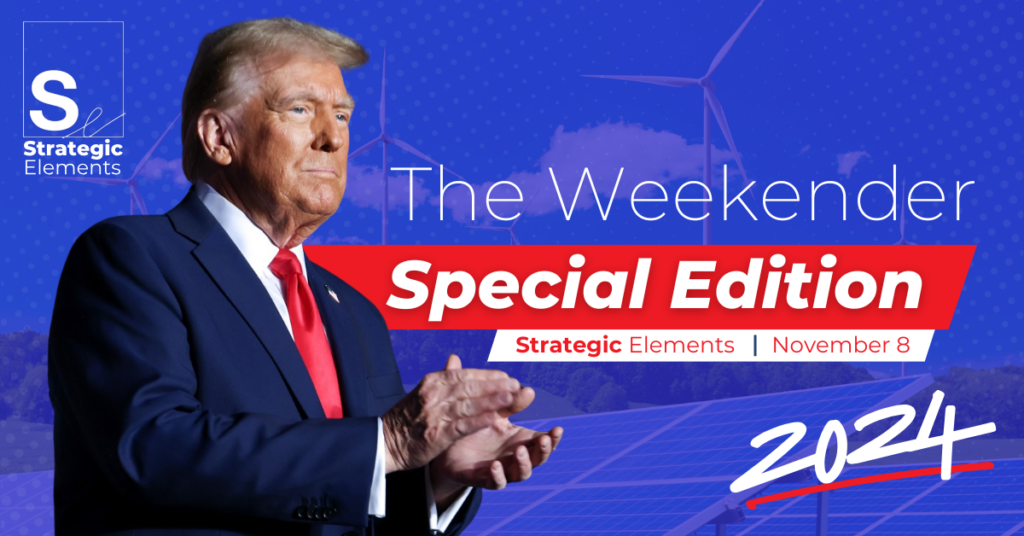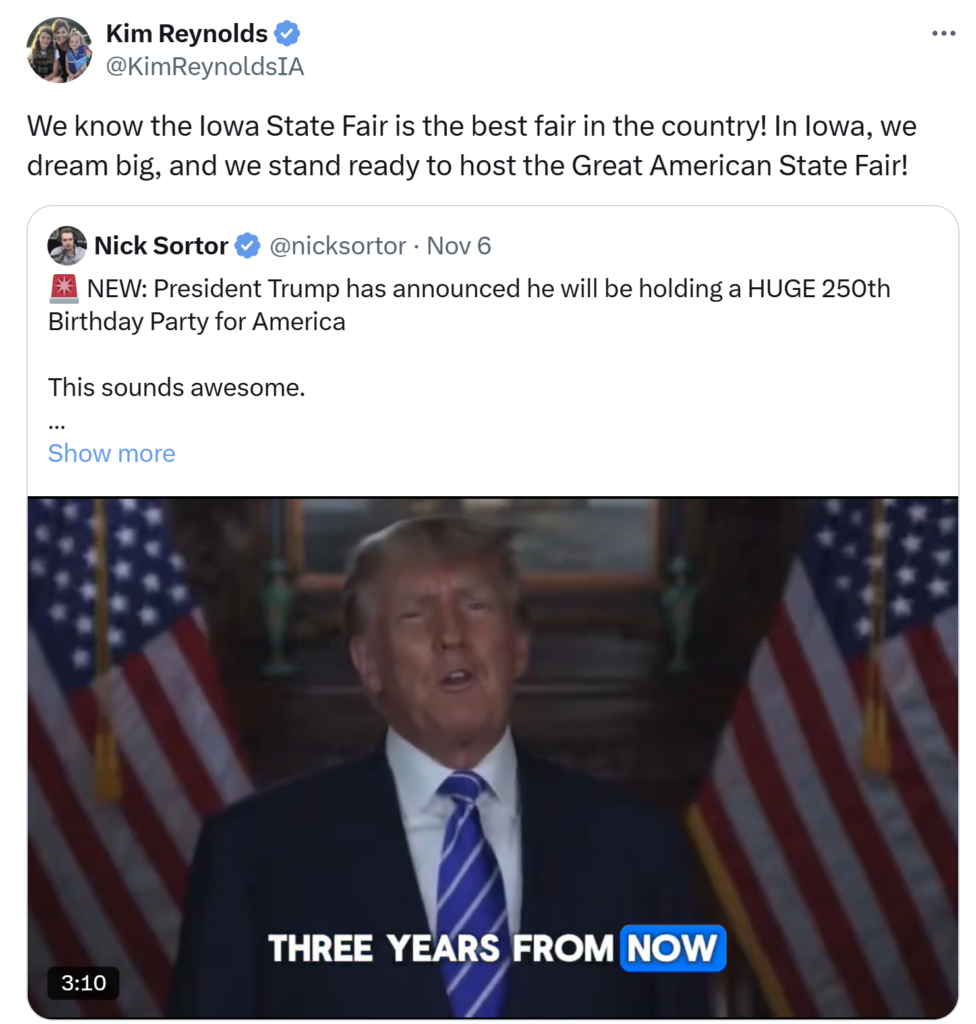DATA POINTS
- Nov. 7: The day Starbucks rolled out their 2024 Holiday Menu
- 7: The number of swing states in this year’s Presidential Election
- 40: The age of JD Vance, the second youngest Vice President in American History
- 78 M: The number of early votes cast
- $1.2 B: The amount spent on political ads in Pennsylvania; the first time in history that a single state has seen more than $1 billion in ads
- 10.5 B: The total spent on campaign ads this election cycle
The Big Thing
The votes are in. The red wave predicted in 2022 crashed to shore in 2024.
From the presidency to the Senate to local county leaders across the Heartland, Republicans surged this cycle. President-elect Trump arguably had his best election performance yet, with white males, non-college educated voters, and Latinos helping clinch the victory. Kamala Harris needed to outperform the 2020 Biden campaign – but she failed to reach his mark compared to his results in nearly every county nationwide. With the Oval and the Senate (and the House too close to call, but leaning R), the GOP will take the reins of government.
So, what does this mean for clean energy?
President-elect Trump made oil and gas production a key tenet of his campaign, and, to some degree, he is expected to increase traditional energy production to boost the economy. The U.S. is demanding more energy every day, so it makes sense that his administration will leverage every available resource to meet those needs.
On the campaign trail, both Trump and Vance lamented some aspects of clean energy, but given the industry’s generation of over 20% of the country’s power, can he afford to dial it back? Trump has challenged President Biden’s Inflation Reduction Act (IRA), but at the same time, red states have benefitted the most from the funding and local tax support that come from clean energy projects. Trump’s closest allies and funders are hitting it big with the IRA as well. Notably his second-largest financier turned rally-partner Elon Musk’s EV manufacturer Tesla is making the most of the package’s tax credits.
At the end of the day, Trump is a businessman. He recognizes the tremendous power appetite of American innovation and the resources required to propel industries forward to compete with China. With wind and solar – and emerging energy industries like nuclear – producing affordable, reliable power, American-made resources are on the rise. Can he embrace it as a feather in his cap instead of an adversary to beat? We will know in a matter of weeks.
What happens to the IRA?

Anyone who’s lived through campaigns and power transitions knows this: Campaign rhetoric to energize a base is different than policy objectives. Trump has vowed to pull out of the Paris Climate Accords as he did in his first term (Biden rejoined them). He’s discussed rescinding regulations on domestic emissions, particularly for power plants, and wants to divert government funding from clean energy manufacturing and installation to build new roads and bridges.
A big question is what the former/future president will do with the IRA’s tax incentives for wind, solar, utility storage batteries, updated transmission lines, and EVs. The funding already provided to projects is safe from being rescinded – but there remains an estimated $33 billion (35%) in funding, excluding federal spending, loans, and tax credits. Will Trump divert that funding? Maybe. But with major funding for rural communities on the table, homegrown energy may be just the solution Trump needs to make America stronger while providing critical resources for next-generation innovation.
The Industry Chimes In
President-elect Trump knows he needs to bolster the economy, reduce inflation, and create new jobs across the country. Elon Musk already has his ear, and his companies are reusing rockets by catching them as they land, looking to put astronauts on Mars, and revolutionizing the EV industry. It’s safe to say Musk believes in the science of things and cares about the perception of major industry leaders.
Jason Grumet, CEO of the American Clean Power Association (ACP), took to LinkedIn after the election to say this: “Domestically produced clean power is vital to meeting our nation’s surging electricity demand. Our industry grew by double digits each year under the first Trump Administration and has accelerated this rate of progress since.” He says the industry is “committed to working with the Trump-Vance Administration and the new Congress to continue this great American success story.”
We won’t pretend to have a crystal ball. Few know exactly what President-elect Trump’s first day, month, or year, will look like for his second term. We do know, however, that renewable energy is a winning solution that the U.S. should continue investing in – and the GOP can rally behind the positive impact it is having across the country.
See you next week!
Be sure to follow us on Facebook, Twitter, and LinkedIn for more news and industry updates. To receive a copy of The Weekender in your inbox, sign up here.








